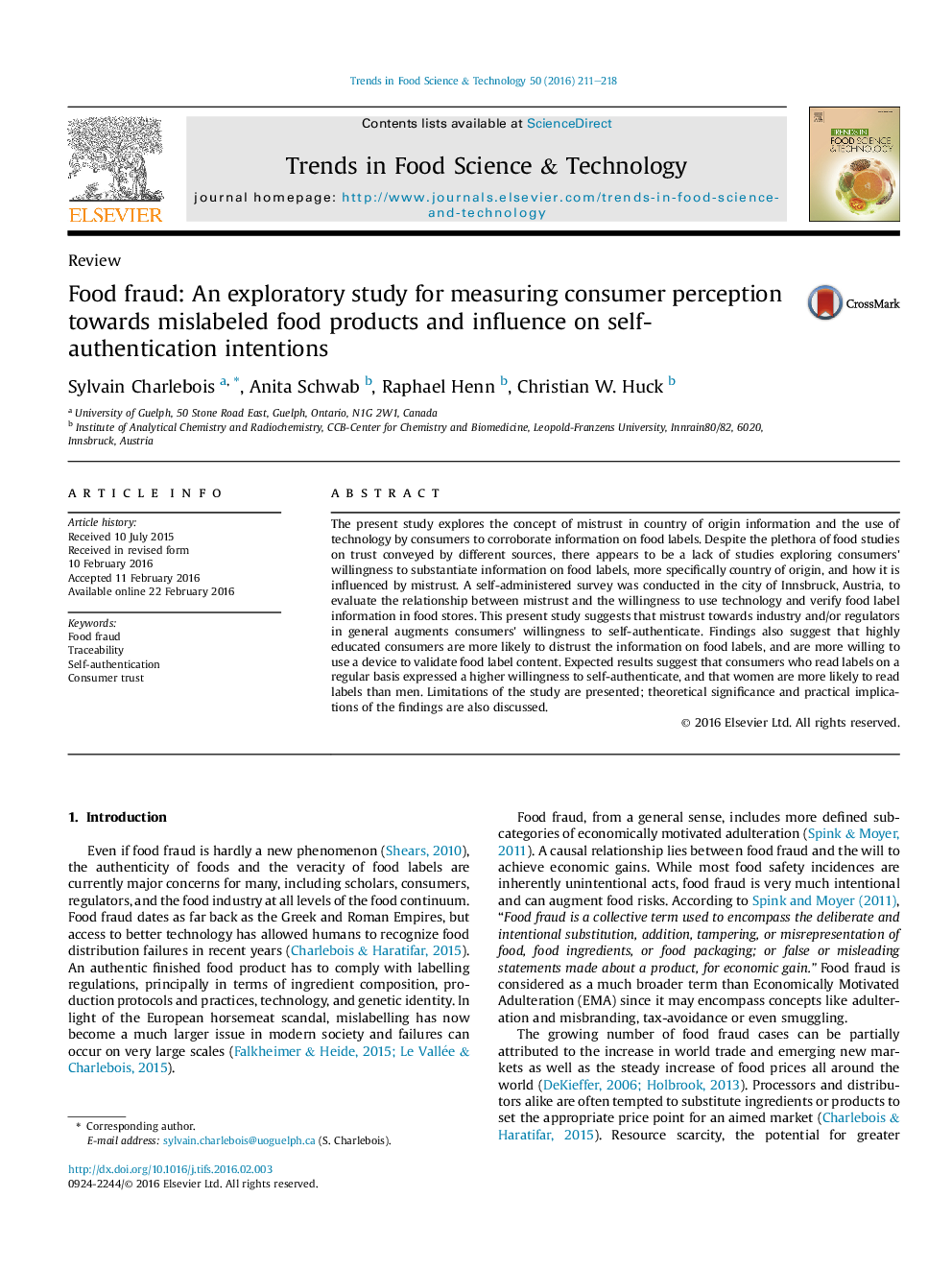| کد مقاله | کد نشریه | سال انتشار | مقاله انگلیسی | نسخه تمام متن |
|---|---|---|---|---|
| 2098461 | 1546128 | 2016 | 8 صفحه PDF | دانلود رایگان |
• Present study explores concept of mistrust in country of origin information and the use of technology by consumers to corroborate information on food labels.
• A self-administered survey was conducted in the city of Innsbruck, Austria, to evaluate the relationship between mistrust and the willingness to use technology and verify food label information in food stores.
• This study suggest that mistrust towards industry and/or regulators in general augments consumers' willingness to self-authenticate.
• Expected results suggest that consumers who read labels on a regular basis expressed a higher willingness to self-authenticate, and that women are more likely to read labels than men.
The present study explores the concept of mistrust in country of origin information and the use of technology by consumers to corroborate information on food labels. Despite the plethora of food studies on trust conveyed by different sources, there appears to be a lack of studies exploring consumers' willingness to substantiate information on food labels, more specifically country of origin, and how it is influenced by mistrust. A self-administered survey was conducted in the city of Innsbruck, Austria, to evaluate the relationship between mistrust and the willingness to use technology and verify food label information in food stores. This present study suggests that mistrust towards industry and/or regulators in general augments consumers' willingness to self-authenticate. Findings also suggest that highly educated consumers are more likely to distrust the information on food labels, and are more willing to use a device to validate food label content. Expected results suggest that consumers who read labels on a regular basis expressed a higher willingness to self-authenticate, and that women are more likely to read labels than men. Limitations of the study are presented; theoretical significance and practical implications of the findings are also discussed.
Journal: Trends in Food Science & Technology - Volume 50, April 2016, Pages 211–218
